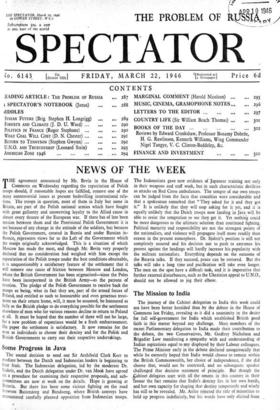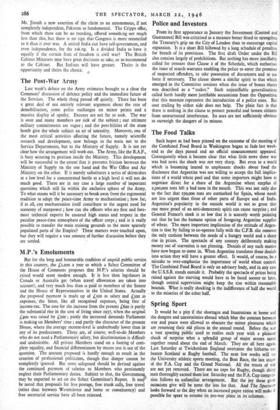The Mission to India
The journey of the Cabinet delegation to India this week could not have been better heralded than by the debate in the House of Commons last Friday, revealing as it did a unanimity in the desire for full self-government for India which established British good faith in this matter beyond any challenge. Most members of the recent Parliamentary delegation to India made their contribution to the debate, the two Conservatives, Mr. Godfrey Nicholson and Brigadier Low manifesting a sympathy with and understanding of Indian aspirations equal to any displayed by their Labour colleagues. The Prime Minister early in the debate declared unequivocally that while he earnestly hoped that India would choose to remain within the British Cothmonwealth, her choice of independence, if she did choose that, would not be contested, and no subsequent speaker challenged that decisive statement of principle. But though the Cabinet delegates start with all the omens in this country in their 'favour the fact remains that India's destiny lies in her own hands, and her own capacity for shaping that destiny temperately and wisely has still to be revealed. Mr. Attlee rejected the title of minorities to hold up progress indefinitely, but his words have only elicited from Mr. Jinnah a new assertion of the claim to an autonomous, if not completely independent, Pakistan as fundamental. The Cripps offer, from which there can be no receding, offered something not much less than this, but there is no sign that Congress is more reconciled to it than it ever was. A united India can have self-government, and even independence, for the asking. Is a divided India to have it equally if the certain fruit of freedom is civil war? The British Cabinet Ministers may have great decisions to take, or to recommend
to the Cabinet. But Indians will have greater. Theirs is the opportunity and theirs the choice. c































 Previous page
Previous page